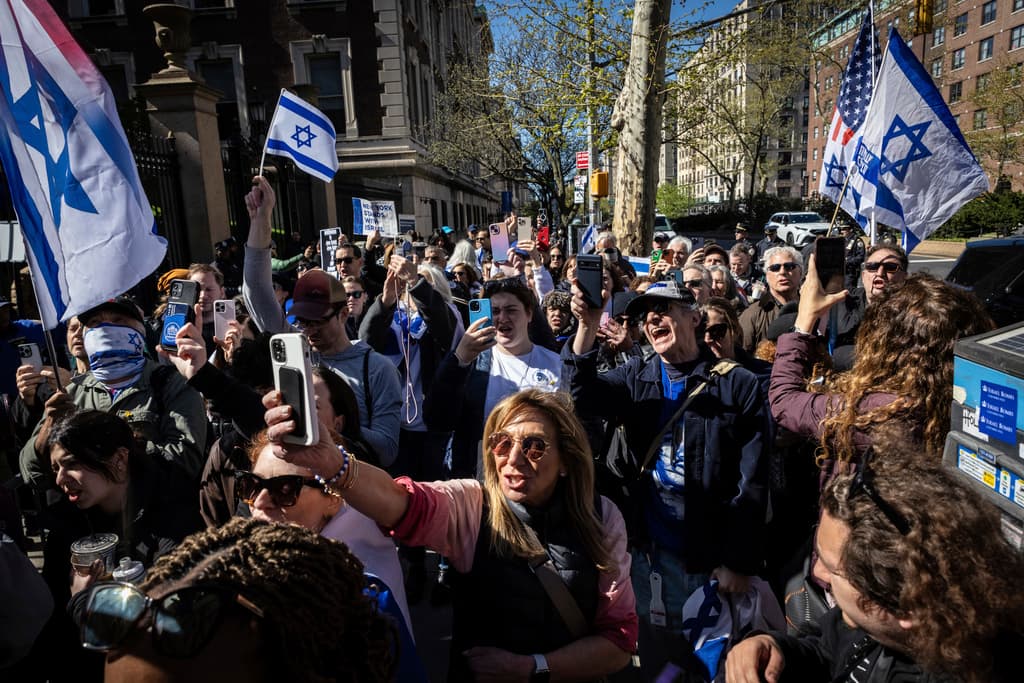Harvard, Columbia, NYU Ranked as Worst Universities for Free Speech Following a Year of Campus Controversies
University of Virginia come in at the top of the rankings as the best place for student expression.

For the second year in a row, Harvard University has been called the worst university in America for student free speech and open inquiry. It ranked dead-last at No. 251 in a survey of 58,807 student respondents by the Foundation for Individual Rights and Expression and College Pulse.
Harvard has an “abysmal” speech climate, FIRE says, joined by Columbia University and New York University. Following closely behind, the University of Pennsylvania, Barnard College, Syracuse University, and the University of Southern California have a “very poor” speech climate.
The rankings released Tuesday are the latest blow to a higher education landscape that has been rocked by questions over the state of student protest and campus discourse in the wake of Hamas’s October 7 attacks on Israel. The drama led to the departures of the leaders of Penn, Harvard, Cornell, and most recently, Columbia, whose president, Minouche Shafik, resigned last month after serving for a rocky twelve months that saw a pro-Gaza and anti-Israel encampment take root on campus.
“The proof of whether a school truly supports free expression is revealed when tested by controversy,” FIRE says. “After a tumultuous school year, too many of America’s colleges failed that test.”
Since 2020, FIRE has recorded 20 incidents at Harvard in which free speech was suppressed, silenced or sanctioned. There were 14 such incidents at Columbia, 12 at NYU, 10 at Penn, and 7 at Barnard during that period.
Out of nearly 59,000 college students surveyed, 55 percent say they find it difficult to discuss the Israeli-Palestinian conflict on campus, the highest FIRE has ever recorded on any issue. Other issues which they say are the most difficult to discuss openly on campus are abortion, transgender rights, racial inequality and gun control. Sixty-nine percent say they would feel somewhat or very uncomfortable publicly disagreeing with a professor about a controversial political topic.
“Conservatives are slammed on this campus for simply just having opposing views. Disgraceful,” a student in the class of 2024 at American University said in the survey.
“I have trouble with some students,” a student in the class of 2027 at Illinois State University who described themselves as “both a Lutheran and strong Democrat,” said, “because I don’t feel comfortable talking about my views when they conflict with many Christians, even though I wish I could state my opinion.”
Interestingly, it appears that pro-Palestinian campus protests represent a small but steely minority of students. Roughly 1 in 10 students surveyed out of the 30 campuses said they have participated in one. Almost three-quarters of respondents say it is at least “rarely” acceptable for college students to establish an encampment as part of a protest on campus.
The top ranked schools for free speech? The University of Virginia comes in at No. 1, followed by Michigan Technological University, and Florida State University. FIRE determined that these schools have a “good” speech climate and actively defended free expression during campus speech controversies. The remaining top ten are Eastern Kentucky University, Georgia Institute of Technology, Claremont McKenna College, North Carolina State University, Oregon State University, University of North Carolina at Charlotte, and Mississippi State University.
Interestingly, all those schools are public institutions — while seven of the worst-ranked schools are private. State colleges and universities, receiving federal funding, are bound by the First Amendment. Private colleges and universities do not have this same Constitutional obligation, though most of them promise their students and faculty broad rights to speak freely — a pledge which is now under a bright spotlight of scrutiny.
“We’re in a heady moment for reformers of higher education,” the president, John Tomasi, of an advocacy group working to counteract a lack of viewpoint diversity on college campuses, Heterodox Academy, tells the Sun. “The terrain of higher education was like a frozen landscape for years. But what happened over the past year is that the ice broke up in all kinds of ways. There’s jagged blocks floating around. There’s all kinds of uncertainty. Now, there’s going to be a movement to start reconsolidating the new world order of universities.”
Harvard, for one, has taken steps to combat the hostile free speech climate on campus. In May, the university announced it would adopt a policy of “Institutional Voice” and no longer issue official statements on matters that are not “relevant to the core function of the university.” The shift would free the administration from attempting to say the right thing at the right time whenever a hot-button issue arises — as it struggled to do following Hamas’s October 7 attacks on Israel.
“Now we have a commitment to what the university is about — academic excellence and truth,” Mr. Tomasi says.“ Where Harvard leads, many others follow.”

